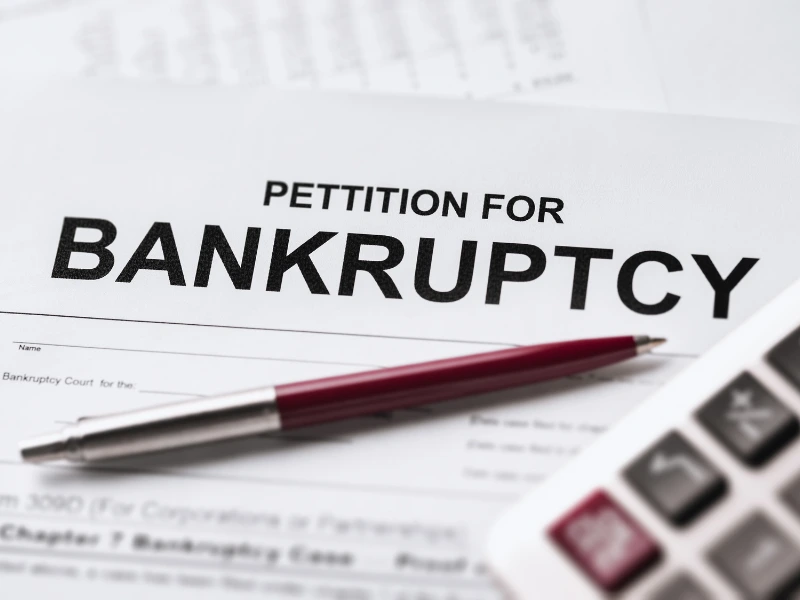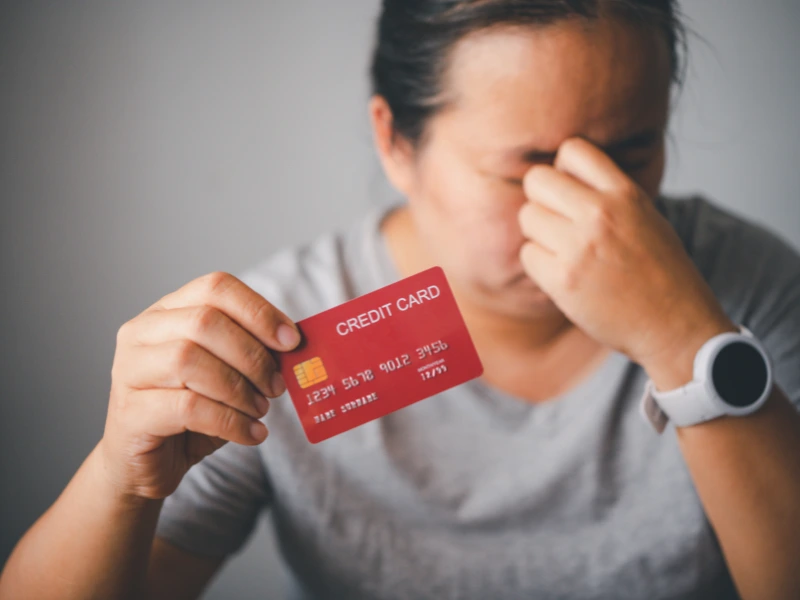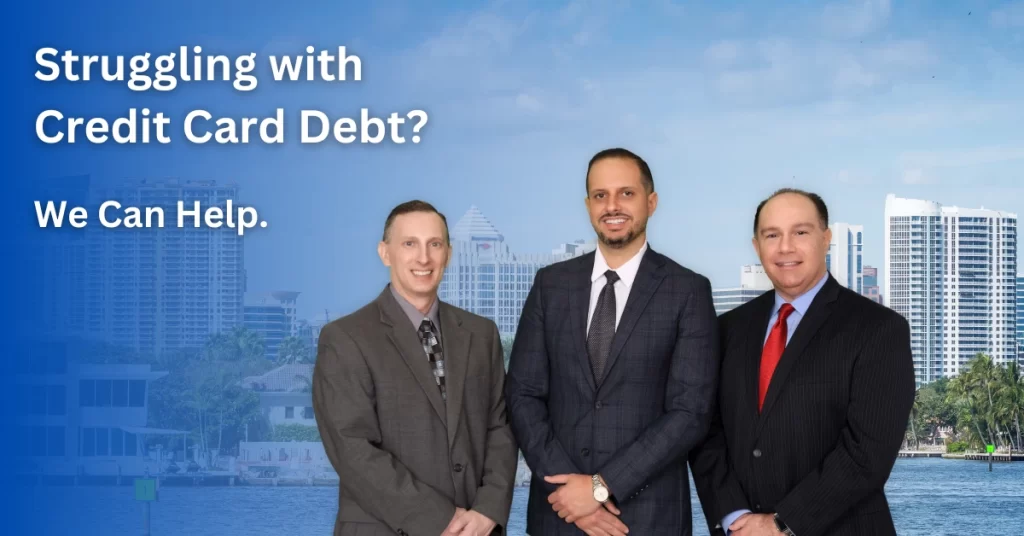LSS Law is a premier law firm in South Florida that offers debt relief options and solutions. Credit card debt remains a major financial issue for Americans, with the national average credit card balance reaching $6,501 in Q3 2023, a 10% increase from the previous year. Florida residents face even greater challenges, carrying an average credit card debt of $7,939 as of Q4 2023, one of the highest in the country. The state ranks third in terms of debt increase, with a 7% rise from Q3 to Q4 2023, underscoring the significant financial pressures faced by Floridians, including those in Miami. LSS Law remains committed to providing expert guidance on debt-related issues and helping clients in Miami, Fort Lauderdale, and surrounding areas.
Credit Card Debt: At a Glance
- Florida residents, including those in South Florida, have a higher debt on credit cards than the rest of the U.S.
- Personal bankruptcy, including Chapter 7 and Chapter 13, can be an option for those struggling with overwhelming credit card debt.
- Direct communication with credit card companies can lead to more favorable terms and help manage debt more effectively.
- Strategy Sessions with LSS Law in Miami and Fort Lauderdale are available to discuss personalized debt relief strategies.
Credit card debt continues to climb, reaching new heights in 2024. When considering all forms of consumer debt, including mortgages, auto loans, and student loans, those in South Florida will need options to manage their debt.
Average Credit Card Debt in South Florida

Credit card debt in Florida, particularly South Florida, has seen a significant increase in recent years:
- Greater Miami’s average credit card debt in Q3 2023 was $7,772, 19% above the national average.
- Florida’s average credit card debt at the end of 2023 was $4,540, ranking 6th highest nationally.
- Florida has the highest credit card debt as a percentage of income in the country at 6.95%.
- Florida has the second-highest credit card delinquency rate in the nation.
The Impact of Credit Card Debt on Your Financial Health

The rising credit card debt in South Florida can seriously affect individuals’ financial health. Higher balances often lead to larger minimum payments and increased interest charges, potentially straining monthly budgets. Additionally, carrying high credit card balances can negatively impact credit scores, making securing favorable terms on future loans or credit applications more difficult.
Can Personal Bankruptcy Help with Credit Card Debt?

Personal bankruptcy can be an effective solution for individuals struggling with overwhelming credit card debt. When credit card balances become unmanageable and minimum payments are no longer feasible, bankruptcy may provide relief:
- Chapter 7 bankruptcy can eliminate most unsecured debts, including credit card balances. This allows debtors to discharge their credit card obligations and get a fresh financial start. However, it’s important to note that Chapter 7 may require the liquidation of some assets to repay creditors.
- Chapter 13 bankruptcy, on the other hand, involves a repayment plan to pay off debts over 3-5 years. This option can help consolidate credit card debts into more manageable monthly payments while potentially reducing overall balances.
While bankruptcy can provide relief from credit card debt, it has significant consequences. It will negatively impact credit scores, making obtaining new credit or loans harder.
Contact us today to learn about which debt solutions are right for you.
Breaking Down Credit Card Debt in South Florida

South Florida residents face various factors contributing to their high credit card debt situation, which include:
- Housing costs: Rising housing expenses have led some Floridians to rely on credit cards for basic needs.
- Credit card APRs: High interest rates from credit card companies, compounded by elevated Federal Reserve rates, contribute to debt accumulation.
- Overspending: Easy access to credit can lead to excessive purchases and debt buildup.
- Post-pandemic effects: Record debt levels, including credit card debt, are attributed by some to the state’s economic recovery from the pandemic.
- Income disparity: In Miami, high median credit card debt contrasts with relatively low median worker earnings, making budgeting for payments challenging.
Who Should Consider Personal Bankruptcy for Credit Card Debt in the Miami Area?
Personal bankruptcy can be a viable option for Miami residents facing severe credit card debt, but it’s a decision that shouldn’t be taken lightly. Here are some situations where individuals and families might consider bankruptcy as a solution:
Individuals with Overwhelming Credit Card Balances

- Credit card debt exceeds 50% of annual income.
- Using credit cards for basic living expenses.
- Only able to make minimum payments each month.
- Experiencing wage garnishment due to credit card lawsuits.
- Credit scores have significantly declined due to high credit utilization.
Families Struggling with Multiple Credit Card Payments

- Credit card payments consume a large portion of household income.
- Unable to meet other financial obligations due to credit card debt.
- High balances prevent saving for emergencies or retirement.
- Considering risky financial moves to pay off credit cards (e.g., 401(k) loans).
- Experiencing stress and family conflicts due to financial pressure.
It’s important to consult a qualified bankruptcy attorney before making any decisions. They can help evaluate your specific situation and determine if bankruptcy is the most appropriate solution for managing your credit card debt in the South Florida area.
Credit Card Debt Assistance in Your South Florida Community
LSS Law in Miami, Fort Lauderdale, and surrounding areas offer valuable assistance for residents struggling with credit card debt, which is higher than the national average in South Florida.
Our attorneys can advise on Chapter 7 or Chapter 13 options for overwhelming debt, considering the unique financial landscape of South Florida. Financial education workshops throughout the area focus on budgeting, responsible credit use, and debt reduction strategies to improve financial literacy and prevent future debt issues.
Contact us today to get in touch with a bankruptcy attorney.
Schedule a No-Cost Strategy Session to Discuss Credit Card Debt

LSS Law offers Strategy Sessions to discuss your unique financial situation and explore potential solutions for managing your credit card debt. During this session, we can:
- Review your current credit card balances and interest rates.
- Analyze your monthly income and expenses.
- Discuss various debt relief options, including bankruptcy.
- Help you create a realistic plan to become debt-free.
Don’t let credit card debt control your life. Book your Strategy Session now and begin your journey towards improved financial stability and peace of mind.
Our two offices are located at:
Fort Lauderdale Office:
- Address: 2699 Stirling Rd. C401, Fort Lauderdale, FL 33312
- Phone number: (954) 833-4019
Miami Office:
- Address: 2 S Biscayne Blvd. Suite 2200, Miami, FL 33131
- Phone number: (954) 866-5536
Credit Card Debt FAQs
What is the average credit card debt in Miami and Fort Lauderdale?
The average credit card debt in Miami and Fort Lauderdale exceeds the national average. This highlights significant financial challenges for South Florida residents in managing credit card debt. Financial experts recommend taking steps to reduce credit card balances and improve overall financial health.
Is it normal to have credit card debt?
While common, credit card debt isn’t financially healthy. Many Americans carry balances monthly, which can lead to financial strain and impact credit scores negatively. High interest rates make it difficult to pay off balances. It’s best to use credit cards responsibly and pay off the full balance monthly when possible. If you or someone you know is struggling with credit card debt, resources are available to help manage and reduce balances.
How quickly should I pay off my credit card debt?
Strive to clear your credit card debt completely each month to prevent accumulating additional interest fees. If you’re carrying a balance, pay more than the minimum to reduce debt faster. Allocate as much money as possible towards credit card debt while meeting other financial obligations. The debt avalanche method, focusing on the highest interest rate card first, is recommended. Set a realistic goal and stick to a repayment plan. Consistently making larger payments and avoiding new charges helps eliminate credit card debt more rapidly.
How does credit card debt affect my credit score?
Credit card debt significantly impacts your credit score. Your credit utilization ratio accounts for about 30% of your score. Keep balances at 25% or less of credit limits to maintain a good score. High balances can lower your score, making it harder to qualify for favorable loans or new credit cards. Also, the length of a credit history impacts a credit score and emphasizes the importance of monitoring credit reports and reducing high balances to maintain a good credit score.


